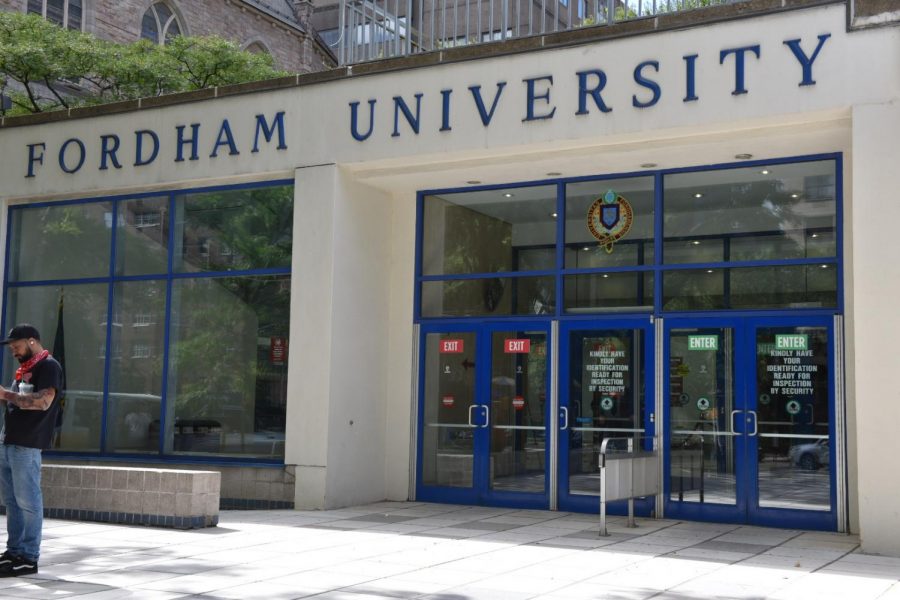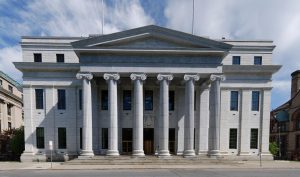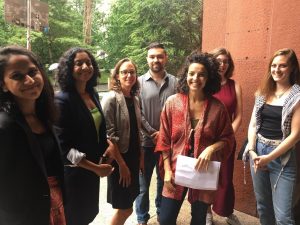FIRE List for Free Speech Ranks Fordham in the Bottom 10
The Foundation for Individual Rights in Education mentions Fordham on its list for the third time in in four years
FIRE has cited Fordham’s legal battle with Students for Justice in Palestine as the reason behind its repeated inclusion on the list, and Fordham’s disciplinary action against Austin Tong in 2020 only added to FIRE’s reasons this year.
March 2, 2021
After facing both Austin Tong, Gabelli School of Business at Lincoln Center ’21, and Students for Justice in Palestine (SJP) in court this past year, Fordham was ranked in the top 10 worst colleges for free speech by the Foundation for Individual Rights in Education (FIRE) on Feb. 17.
“Fordham University managed to find itself in courtrooms arguing against student rights in not one but two unrelated cases this year. Either one would have earned it a spot on this list,” FIRE stated in its article.
This is FIRE’s 10th year creating the list of the 10 worst schools for free speech. Its mission is to promote freedom of speech, freedom of association, due process, legal equality, religious liberty and sanctity of conscience.
“At FIRE, we’ve seen universities offer a number of viewpoint-discriminatory justifications for rejecting student groups’ applications to become officially recognized, but few are as persistent and brazen as Fordham University’s.” Foundation for Individual Rights in Education in 2017
Fordham University has been involved in a four-yearlong court battle with SJP over its denial of the group’s request for official club status on campus. Fordham’s previous rankings at the bottom of FIRE’s list for worst colleges for free speech in 2017 and 2018 were due to the ongoing court case with SJP.
“At FIRE, we’ve seen universities offer a number of viewpoint-discriminatory justifications for rejecting student groups’ applications to become officially recognized, but few are as persistent and brazen as Fordham University’s,” the 2017 ranking said.
When the SJP case first began in 2017, FIRE not only put Fordham on its list but also sent a letter on behalf of SJP. In this letter, FIRE demanded that Fordham allow SJP to be a formally recognized club due to Fordham’s stated commitment to free speech. In response, Fordham told FIRE that SJP could not be a club due to the “inappropriate” behavior of other SJP chapters at other schools.
“I think [FIRE has] a motive to get the headlines. I would disagree with their assessment but they have the right to their opinion and the right to make that statement. I didn’t think it was proportionate to the incident, personally,” Keith Eldredge, dean of student services at the time, told The Observer in 2017.
In 2018, Fordham found itself back on the list because of the previous sanctioning of students and because Fordham continued to change the reason why SJP could not be a club on campus, according to FIRE.
“Members of the University community are expected and encouraged to engage in robust, respectful discourse, and do so every day.” University statement to The Observer, 2018
The original reasoning was that Fordham thought the pro-Palestinian advocacy could be polarizing. By the end, they claimed that the group could form, as long as they did not use the name “Students for Justice in Palestine.”
At that time, the university declined to comment on SJP but told The Observer that “FIRE’s listing misrepresents the state of free expression at Fordham, and frames the issues of free speech and academic freedom in the narrowest possible way. Members of the University community are expected and encouraged to engage in robust, respectful discourse, and do so every day.”
In addition to the ongoing SJP court case, Fordham also made FIRE’s 2020 list because of its legal battle with student Austin Tong. In summer 2020, Tong received backlash after posting a photo of himself online holding a rifle with the caption “Don’t tread on me. #198964,” a reference to the Tiananmen Square Massacre, that many saw as threatening.
Fordham took disciplinary actions against Tong by not allowing him to enter campus without advanced permission or to participate in extracurricular activities. He also needed to complete implicit bias training. Tong then filed a lawsuit against the university only to have it later dismissed.
FIRE CEO and President Greg Lukianoff stated in the press release that he expected 2020 to be a calmer year, but he was shocked by what he witnessed.
“Last year was the busiest in FIRE’s history, showing that while nearly every facet of our lives changed during the pandemic, at least one aspect remained shockingly constant: Administrators will continue to censor students and faculty members for no damn reason,” Lukinaoff said.
Fordham University declined to comment on the ranking, saying it never comments on lists of this kind.


















Joe McShane • Mar 3, 2021 at 1:34 am
here is the basic research you failed to do in your effort to brown nose with FIRE. please just like,.,,.,,do better
https://prospect.org/education/conservatives-behind-campus-free-speech-crusade/
https://www.nytimes.com/2016/10/17/arts/pen-warns-that-college-students-often-see-free-speech-as-a-cudgel.html
https://www.nytimes.com/2016/08/07/education/edlife/fire-first-amendment-on-campus-free-speech.html